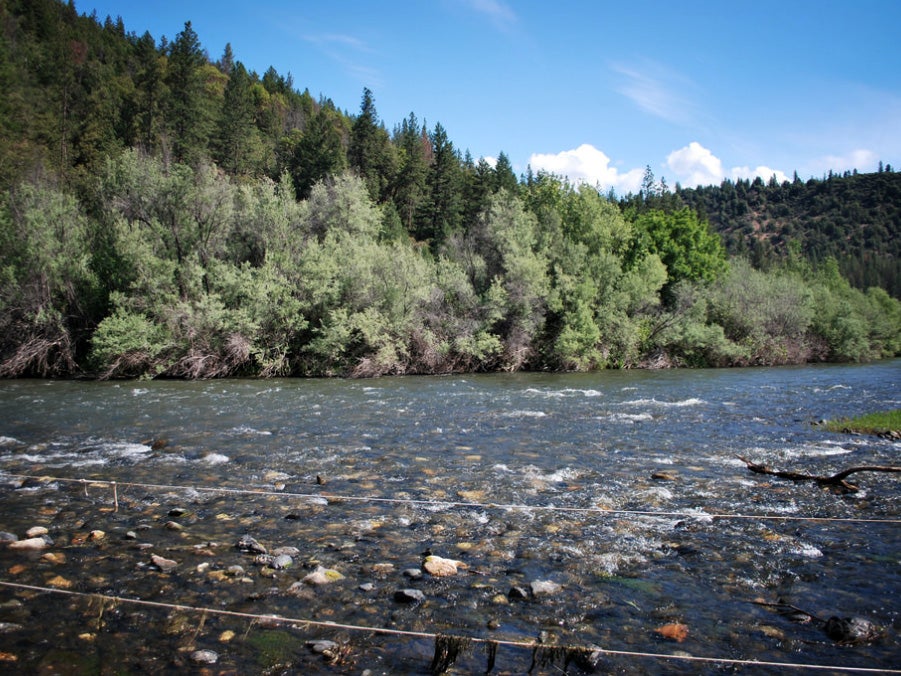Judge Denies Irrigators Special Treatment, Millions in Drought Payments
Victory
—Court denies Klamath agribusiness interests $30 million years after 2001 drought
Contact
Judge Marian Blank Horn of the U.S. Court of Claims has ruled against agribusiness interests within the federal Klamath Irrigation Project that had been demanding some $30 million in compensation for reduced irrigation water deliveries during an extreme drought that struck the Klamath River Basin in 2001.
Though other groups in the Klamath Basin of Oregon and California suffered during the 2001 drought — including Tribal Nations, the salmon fishing industry, and farmers outside of the Klamath Project — Klamath Project irrigation interests wanted a special payout to compensate them for a federal decision to leave some water in the Klamath River and Upper Klamath Lake for imperiled salmon and other fish.
Judge Horn, in an opinion issued on September 29, ruled that the Klamath Tribes’ rights to the water were superior to the agribusiness interests, and that the amount of water needed to maintain those rights was at least as much as was needed to meet the requirements of the federal Endangered Species Act to save imperiled salmon and Lost River and shortnose suckers and coho salmon.
The $30 million in compensation requested by the irrigators would have been in addition to the approximately $40 million in state and federal relief provided to Klamath agribusiness interests immediately after the 2001 drought.
“The government made a science-based decision about what was required to protect endangered salmon in the Klamath River and endangered lake fish in Upper Klamath Lake — the end result of which was to leave a minimal amount of water in the river,” said Todd True, a senior attorney in Earthjustice’s Seattle office who has been representing fishing and conservation interests in the long-running case. “This decision was required by the law and had the effect of helping to protect the economies and traditions of tribal and coastal communities that rely on salmon and other fish.”
Fishing families, coastal communities, and Tribal Nations that depend on healthy Klamath River salmon runs would have been irreparably harmed if the government had provided full water deliveries to irrigators in the middle of the 2001 drought. The Klamath Basin traditionally produces the third largest runs of salmon of any basin in the lower 48 states, bolstering seafood production and recreational opportunity in coastal communities from central California to northern Oregon. Klamath salmon also support traditional subsistence harvest by several Tribes that have made their home in the basin since time immemorial.
Since 2001, water management decisions in the Klamath Basin have continued to spark controversy and disaster. As drought continued in 2002, the federal government — under extreme pressure from agribusiness interests — reversed course and provided full water deliveries to the Klamath Project. This decision led to record low Klamath River flows and the largest adult salmon kill in U.S. history up to that time. The resulting devastation of the commercially valuable Klamath fall Chinook salmon run later led to the nearly complete closure of ocean recreational and commercial salmon fishing spanning more than 700 miles of coastline in 2006. Low flows in the Klamath resulting from water allocation decisions in the Klamath Project in 2014 and 2015 have led to record low salmon production and sparked yet another salmon fishing disaster on the coast this year.
“The massive 2002 Klamath salmon kill was devastating to our industry,” said Glen Spain of the Pacific Coast Federation of Fishermen’s Associations (PCFFA), which represents hundreds of commercial fishing families on the west coast. “Ultimately, it cost fishermen and fishing communities thousands of jobs and an estimated $200 million in lost business, much of which was never recovered. This is how the Klamath’s overstretched water supply creates a ‘jobs vs. jobs’ and ‘communities vs. communities’ conflict that has no winners. This latest ruling just underscores the need for resuming negotiations to try to rebalance the water allocation system in line with actual rainfall, rather than managing water in the basin by lawsuit.”
The irrigators’ claims in this case also ran counter to the water rights system of the Klamath Basin, which are ruled by the first-in-time, first-in-right priority system common in the Western U.S. Judge Horn agreed with an amicus brief in the case filed by the Klamath Tribes noting that their federally recognized, from time immemorial water rights are the most senior in the entire Upper Klamath Basin. Therefore, the irrigators, as more junior water rights holders, were not entitled to divert water for crops in 2001 if it was needed to fulfill the Tribes’ senior water rights to protect the Tribes’ fishing rights reserved under their 1864 treaty with the United States.
“This court decision, while welcome, does not and cannot solve the fundamental problem of the Klamath, which is that too much water has been promised to too many interests,” said Jim McCarthy of WaterWatch of Oregon. “This fundamental imbalance will continue to cause serious harm to Klamath fish and wildlife as well as all the communities that depend on the Klamath River until we take steps to bring the basin’s demand for water into balance with what nature can provide.”

Additional Resources
About Earthjustice
Earthjustice is the premier nonprofit environmental law organization. We wield the power of law and the strength of partnership to protect people's health, to preserve magnificent places and wildlife, to advance clean energy, and to combat climate change. We are here because the earth needs a good lawyer.